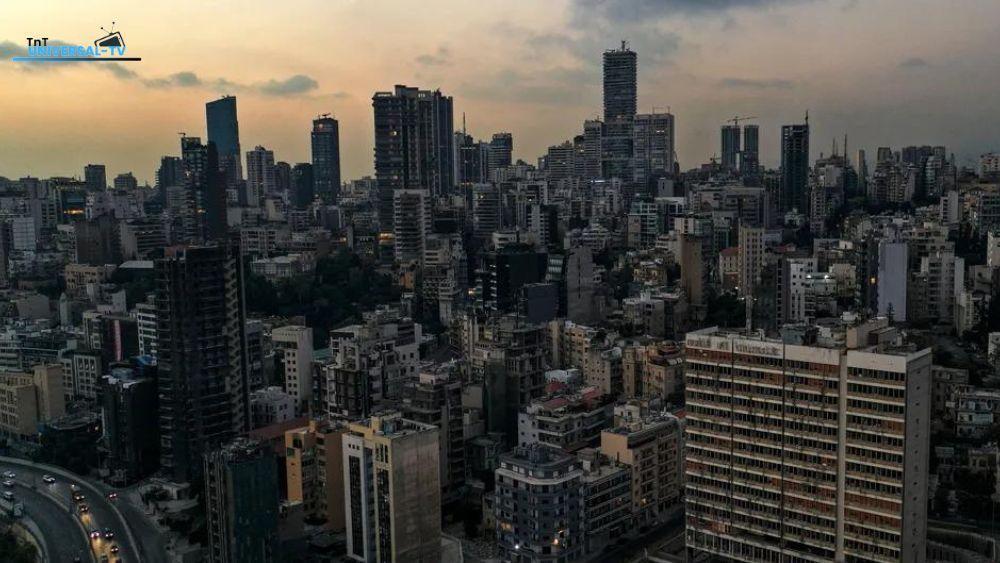
In light of Lebanon’s entry into the most severe economic crisis, the concept of public safety in general seemed to be largely absent in the country, whether in terms of traffic safety or in terms of building collapse, or other accidents that top the local media.
The Lebanese citizen faces great negligence in implementing the laws that protect his life, starting with the traffic law, cars and the chaos of motorcycles that violate the laws, and the lack of lighting in some roads, to the failure to implement the building and public works law, and the failure to reinforce walls and construction and ensure safety in buildings and facilities, passing through the dangers of flying panels. Solar energy as a result of the randomness in its installation, leading to food safety and the spread of cholera.
Public safety is not limited to traffic law, construction or safety at work, but also means safety in every place and time.
negligence in maintenance
In this regard, civil planning engineer, Youssef Azzam, head of the Building Safety Network Association, a non-governmental association that has been operating in Lebanon since 2007 and includes a group of engineers, said that “only divine power protects the citizen in Lebanon.”
Azzam listed the reasons, in an exclusive interview with TnT Universal Tv, saying:
- Most of the apartment buildings are old, modified after the civil war during which they were severely damaged, and can be classified as non-compliant with engineering specifications and public safety.
- Old housing lease contracts.
Old rents constitute a thorny legislative issue, as there are more than 10,000 housing units subject to the old rent law since the beginning of the war in early 1975, and the state extended the law, leaving the value of rents low.
Consequently, the property owner is not able to maintain it, nor does the tenant carry out the periodic maintenance of the building, which makes these buildings threatened with collapse.
the responsibility
Azzam revealed many gaps in the construction sector, which negatively affected public safety, most notably “the lack of periodic inspection and inspection of residential buildings, except for a few.”
He added: “The responsibility is shared, some of which bear the municipalities and the relevant ministries and more than one party in Lebanon,” noting that “all Lebanese cities lack a comprehensive survey by their municipalities.”
What do the numbers say?
Azzam explained: “The last statistics carried out by the association with an individual effort, due to the absence of official statistics dating back to 2014, showed by scanning and downloading special maps through the GIS aerial image program and data analysis, that 16,000 old buildings in Lebanon need immediate maintenance.”
At the same time, he stressed, “there is a general lack of a culture of maintenance and rehabilitation,” calling on municipalities to “assume their responsibilities.”
Solar panels..the immediate concern
Another problem is the solar panels, which spread chaotically on the roofs of houses last year due to the almost permanent power outages in cities and villages, and the inability of the official Electricity of Lebanon Corporation to provide electricity to citizens.
Azzam described the situation as “the worst”, expecting “accidents with high winds in the winter, which may remove many of the panels installed on the roofs of buildings, to fall on pedestrians, because their installation was done in unthoughtful ways in many areas.”
Accounting
For his part, lawyer Paul Morcos stressed, in an interview with “TnT Universal Tv”, the need to implement “accountability” for all negligent officials.
He said: “Accountability in Lebanon is almost absent at all levels, including the so-called (judgment and destiny), which, even if it is achieved, should not obscure responsibility and compensation for damage, in accordance with the general provisions of responsibility stipulated by Lebanese law.”
He continued, “As much as it requires awareness from the authorities and the distribution of responsibilities, it must be followed up by the affected citizen until reaching the identification of the person responsible and compensation.”
Morcos pointed out that “there are precedents for citizens who claimed against the local authorities, that is, the municipalities, and the Lebanese state represented by the Ministry of Public Works or the Council for Development and Reconstruction, and they were compensated as a result of judicial review.”
lack of traffic safety
In turn, the director of the Traffic Safety Observatory at the “Justicia” human rights organization, Kamal Ibrahim, described traffic safety in Lebanon as “tragic.”
He told TnT Universal Tv: “The reality has deteriorated further as a result of the absence of components related to public and traffic safety, especially in the last three years,” citing the reasons for “the absence of street lighting, lack of law enforcement, lack of awareness, and mechanical inspection of cars.”
Ibrahim called on “the concerned departments to make the necessary effort with the existing capabilities, to develop a clear plan, to work regularly and to ensure political stability, so that the official departments can return to carrying out their duties.”
At the same time, Ibrahim referred to “some individual efforts for positive initiatives”, but described them as “temporary solutions”, concluding his speech by saying: “The situation needs a comprehensive national strategy that preserves the threatened lives of citizens.”
Food security
In a related context, health officials and experts in Lebanon warned of the spread of cancer at a higher rate in the Bekaa Governorate, in the east of the country.
In the absence of official statistics, residents say that “cancer is remarkably invading the towns of the central and western Bekaaan,” amid reports indicating that “the pollution of the Litani River is one of the most important causes of the disease’s spread.”
cholera spread
Lebanon is also living in precarious conditions due to the spread of cholera in the areas near the Syrian refugee camps.
Experts told TnT Universal Tv, “The solution remains to secure clean water, health supplies, vaccinations, and clean sanitary pits, because the camps are the main place in which the epidemic spreads.”
